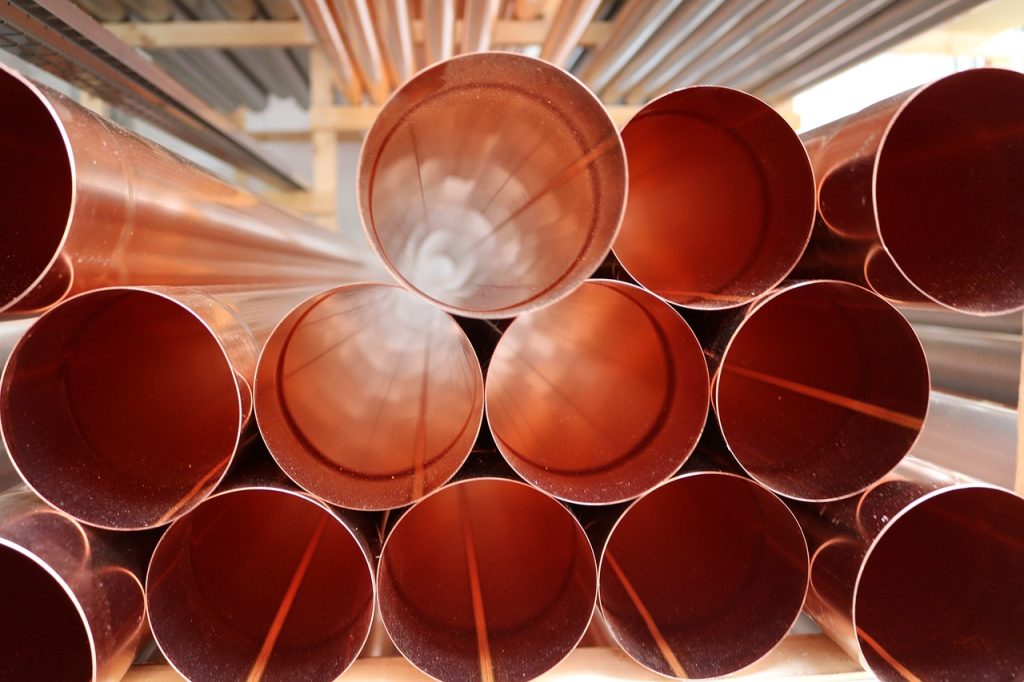How to Select the Right Copper Products for Your DIY Projects and Home Renovations
How to Select the Right Copper Products for Your DIY Projects and Home Renovations
Blog Article
How Copper Products Add To Lasting Practices in Numerous Industries
In eco-friendly energy systems, for example, copper improves the functionality of solar and wind technologies, while its application in building reduces waste through durability. As industries seek to take on even more lasting practices, the duty of copper might prove crucial in accomplishing ecological objectives.
Copper in Renewable Resource
Copper plays a critical function in the development of eco-friendly power innovations, serving as an important conductor in various applications. Its outstanding electric conductivity and resistance to rust make it an optimal product for electric wiring, which is crucial in solar panels, wind generators, and energy storage space systems. In solar photovoltaic or pv systems, copper is made use of in the affiliations and circuitry, allowing reliable energy conversion from sunlight to electrical power.
In wind power, copper is essential to the generators and transformers that transform kinetic energy right into electric power, guaranteeing optimal efficiency and integrity. Additionally, the need for electrical vehicles (EVs) is enhancing, with copper being a key part in batteries, electric motors, and charging facilities. The shift to EVs dramatically enhances the demand for copper, as these automobiles typically utilize 4 times extra copper than standard inner combustion engine cars.
As the globe looks for to minimize climate modification and shift to lasting power sources, copper's role becomes increasingly vital. The product not just boosts the performance and longevity of renewable resource systems however likewise supports the broader goal of decreasing greenhouse gas discharges and promoting a lasting future.
Eco-Friendly Construction Products
Over the last few years, there has been a notable change in the direction of the adoption of eco-friendly construction materials in feedback to expanding environmental problems. This modification is encouraged by the need for sustainable alternatives that reduce eco-friendly footprints while maintaining architectural integrity and aesthetic allure.
Copper, recognized for its toughness and recyclability, has actually arised as a principal in this sector. It can be used in roof covering, plumbing, and electrical systems, adding to power efficiency and lowering waste. Copper's longevity means fewer replacements in time, further improving its sustainability profile.
In addition, products such as bamboo, reclaimed timber, and reused steel are gaining appeal. These choices not only use minimized ecological effect however also promote source preservation. As building codes increasingly emphasize sustainability, home builders and engineers are incorporating these products into their projects, fostering advancement in layout.
The enhancing adoption of green building and construction materials mirrors a wider dedication to sustainability in the built atmosphere. By prioritizing these products, the construction market can considerably decrease its carbon impact, align with governing requirements, and support a much healthier environment for future generations. This trend notes a critical action in the direction of a more sustainable future in building.
Copper's Function in Healthcare
Current studies have highlighted the substantial role of copper in health care setups, especially because of its antimicrobial properties. Copper surface areas have actually been shown to decrease the presence of microorganisms, consisting of microorganisms and viruses, by up to 99.9% within a brief duration. This amazing effectiveness makes copper a very useful material for high-touch surfaces in medical facilities, such as doorknobs, bed rails, and IV posts, consequently contributing to improved infection control actions.
Along with its direct antimicrobial impacts, copper likewise contributes in the broader context of health center sustainability (Copper Products). By incorporating copper into medical equipment and furnishings, health care centers can decrease the incidence of healthcare-associated infections (HAIs), which not only enhances client end results yet additionally reduces the expenses related to extensive health center keeps and added therapies
Furthermore, copper's toughness and recyclability straighten with lasting techniques, enabling accountable resource monitoring. As healthcare systems progressively prioritize both individual security and ecological stewardship, the assimilation of copper products is becoming more prevalent. This twin benefit emphasizes copper's essential payment to a much healthier, much safer, and a lot more sustainable healthcare environment.
Sustainability in Transportation

Furthermore, copper's durability and rust resistance add to the durability of transport framework (Copper Products). In rail systems, as an example, copper components enhance the dependability and performance of signaling and power systems, crucial for reducing delays and power usage. Furthermore, copper's function in renewable resource systems, such as solar and wind, sustains sustainable transportation remedies by giving tidy energy for electrical transit alternatives
Investments in copper modern technology not see post just foster sustainability however likewise stimulate economic growth and work production in green industries. As industries strive to satisfy stringent ecological regulations, the application of copper items in transport becomes a critical approach in achieving sustainability goals and promoting a cleaner, extra efficient future.
Copper and Round Economic Climate
As the globe significantly accepts sustainability, the duty of copper in the round economy ends up being ever before more substantial. Copper's intrinsic homes-- such as its conductivity, recyclability, and toughness-- position it as a crucial product in a resource-efficient economy. The circular economic situation aims to lessen waste and make best use of source use with recycling and reusing products, and copper excels in this respect.
The steel can be recycled indefinitely without loss of high quality, making it an excellent prospect for sustainable techniques across different sectors, consisting find more information of building, electronics, and renewable resource. By recycling and recovering copper from end-of-life items, industries can substantially lower the demand for virgin products, thereby reducing environmental impacts connected with mining and processing.
Additionally, the integration of copper into circular economic situation structures not only saves resources but also promotes technology. Companies that focus on copper reusing contribute to an extra sustainable supply chain, improving their competition while straightening with regulative needs and customer preferences for ecologically responsible products.
Final Thought
Finally, copper items dramatically add to sustainable techniques throughout multiple sectors. Their essential function in boosting eco-friendly energy modern technologies, advertising environmentally friendly construction materials, supporting infection control in healthcare, facilitating sustainable transport, and embodying the principles of a circular economic climate emphasizes the versatility and importance of copper. By incorporating copper into numerous applications, markets can accomplish greater efficiency, decrease ecological influence, and align with global sustainability goals, ultimately fostering a more sustainable future.

Copper's superb conductivity makes it a favored material in electrical automobile (EV) systems, enhancing energy efficiency and efficiency. In Extra resources addition, copper's duty in eco-friendly power systems, such as solar and wind, sustains lasting transport services by providing clean power for electric transportation choices.
Their vital role in boosting sustainable energy modern technologies, advertising green building materials, sustaining infection control in health care, promoting sustainable transport, and embodying the concepts of a round economy underscores the convenience and relevance of copper.
Report this page